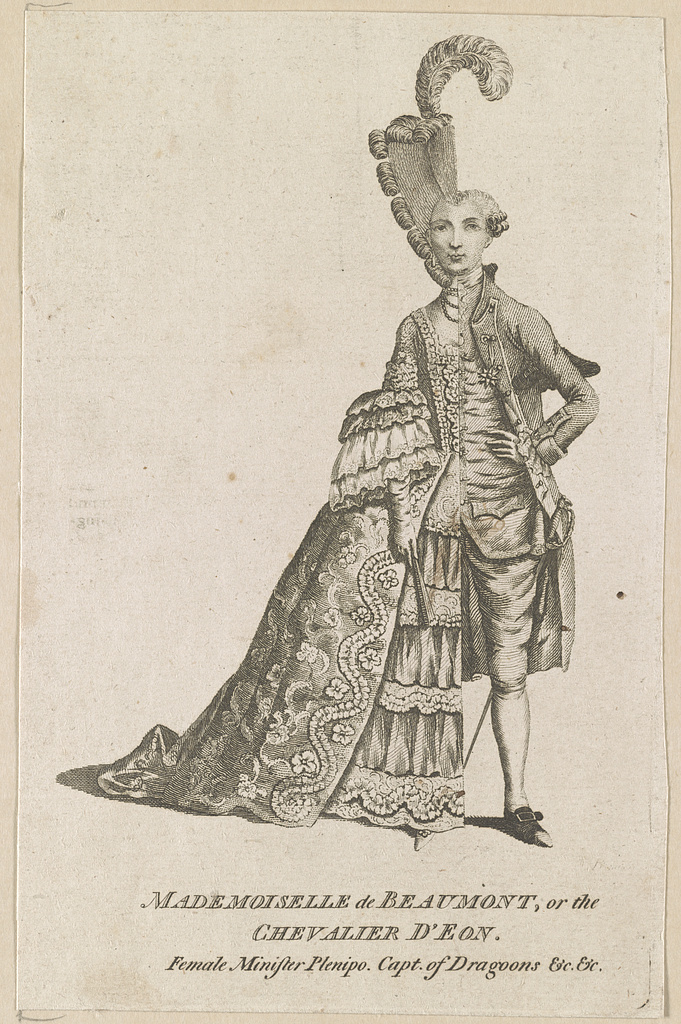In Atlas Obscura, Linda Rodriguez McRobbie tells the story of the French soldier, diplomat and spy, the Chevalier d’Eon (also known as Mademoiselle la Chevaliere d’Eon):

Mademoiselle de Beaumont or The Chevalier D’Eon. (Photo: Library of Congress/LC-DIG-ds-03347)
When the Chevalier d’Eon left France in 1762, it was as a diplomat, a spy in the French king’s service, a Dragoon captain, and a man. When he returned in July 1777, at the age of 49, it was as a celebrity, a writer, an intellectual, and a woman — according to a declaration by the government of France.
What happened? And why?
The answer to those questions is complex, obscured by layers of bad biography, speculation and rumor, and shifting gender and psychological politics in the years since, as well as d’Eon’s own attempts to reframe his story in a way that would make sense to his contemporary society. (Note: In consultation with d’Eon’s biographer, I have decided to use the male pronoun when talking about d’Eon before the gender shift and the female pronoun after.) Professor Gary Kates of Pomona College is one of the first modern academics to look closely at the life — or lives — of the Chevalier d’Eon, in his comprehensive biography Monsieur d’Eon Is a Woman. Kates had access to d’Eon’s personal papers, a treasure trove of manuscripts, diaries, financial records, documents, and letters housed at the University of Leeds, and his work is widely considered the best place to start when considering d’Eon.
The story Kates tells is a complex narrative, involving Ancien Regime intrigue, secret spy rings, political necessity, burgeoning celebrity culture, and nascent feminism. The meaning of d’Eon’s transformation has been dissected for centuries; feminist writer Mary Wollstonecraft praised d’Eon in their lifetime and contemporary trans groups have named themselves in d’Eon’s honor.
Even so, Kates cautions that the history of this fascinating figure is far from complete. “I don’t think I’ve written the definitive book on d’Eon,” he says. How could he? This is a person who lived enough for three lifetimes.



